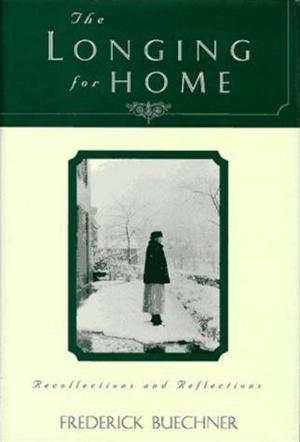| Author: | Susan Griffin | ISBN: | 9780062094346 |
| Publisher: | HarperOne | Publication: | June 28, 2011 |
| Imprint: | HarperOne | Language: | English |
| Author: | Susan Griffin |
| ISBN: | 9780062094346 |
| Publisher: | HarperOne |
| Publication: | June 28, 2011 |
| Imprint: | HarperOne |
| Language: | English |
In this boldly intimate and intelligent blend of personal memoir, social history, and cultural criticism, Susan Griffin profoundly illuminates our understanding of illness. She explores its physical, emotional, spiritual, and social aspects, revealing how it magnifies our yearning for connection and reconciliation.
Griffin begins with a gripping account of her own harrowing experiences with Chronic Fatigue and Immune Dysfunction Syndrome (CFIDS), a potentially life-threatening illness that has been misconstrued and marginalized through the label "psychosomatic." Faced with terrifying bouts of fatigue, pain, and diminished thinking, the shame of illness, and the difficulty of being told you are "not really ill," she was driven to understand how early childhood loss made her susceptible to disease.
Alongside her own story, Griffin weaves in her fascinating interpretation of the story of Marie du Plessis, popularized as the fictional Camille, an eighteenth-century courtesan whose young life was taken by tuberculosis. In the old story, Griffin finds contemporary themes of "money, bills, creditors, class, social standing, who is acceptable and who not, who is to be protected and who abandoned." In our current economy, she sees "how to be sick can impoverish, how poverty increases the misery of sickness, and how the implicit violence of this process wounds the soul as well as the body."
Griffin insists that we must tell our stories to maintain our own integrity and authority, so that the sources of suffering become visible and validated. She writes passionately of a society where we are all cared for through "the rootedness of our connections. How the wound of being allowed to suffer points to a need to meet at the deepest level, to make an exchange at the nadir of life and death, the giving and taking which will weave a more spacious fabric of existence, communitas, community." Her views of the larger problems of illness and society are deeply illuminating.
In this boldly intimate and intelligent blend of personal memoir, social history, and cultural criticism, Susan Griffin profoundly illuminates our understanding of illness. She explores its physical, emotional, spiritual, and social aspects, revealing how it magnifies our yearning for connection and reconciliation.
Griffin begins with a gripping account of her own harrowing experiences with Chronic Fatigue and Immune Dysfunction Syndrome (CFIDS), a potentially life-threatening illness that has been misconstrued and marginalized through the label "psychosomatic." Faced with terrifying bouts of fatigue, pain, and diminished thinking, the shame of illness, and the difficulty of being told you are "not really ill," she was driven to understand how early childhood loss made her susceptible to disease.
Alongside her own story, Griffin weaves in her fascinating interpretation of the story of Marie du Plessis, popularized as the fictional Camille, an eighteenth-century courtesan whose young life was taken by tuberculosis. In the old story, Griffin finds contemporary themes of "money, bills, creditors, class, social standing, who is acceptable and who not, who is to be protected and who abandoned." In our current economy, she sees "how to be sick can impoverish, how poverty increases the misery of sickness, and how the implicit violence of this process wounds the soul as well as the body."
Griffin insists that we must tell our stories to maintain our own integrity and authority, so that the sources of suffering become visible and validated. She writes passionately of a society where we are all cared for through "the rootedness of our connections. How the wound of being allowed to suffer points to a need to meet at the deepest level, to make an exchange at the nadir of life and death, the giving and taking which will weave a more spacious fabric of existence, communitas, community." Her views of the larger problems of illness and society are deeply illuminating.















